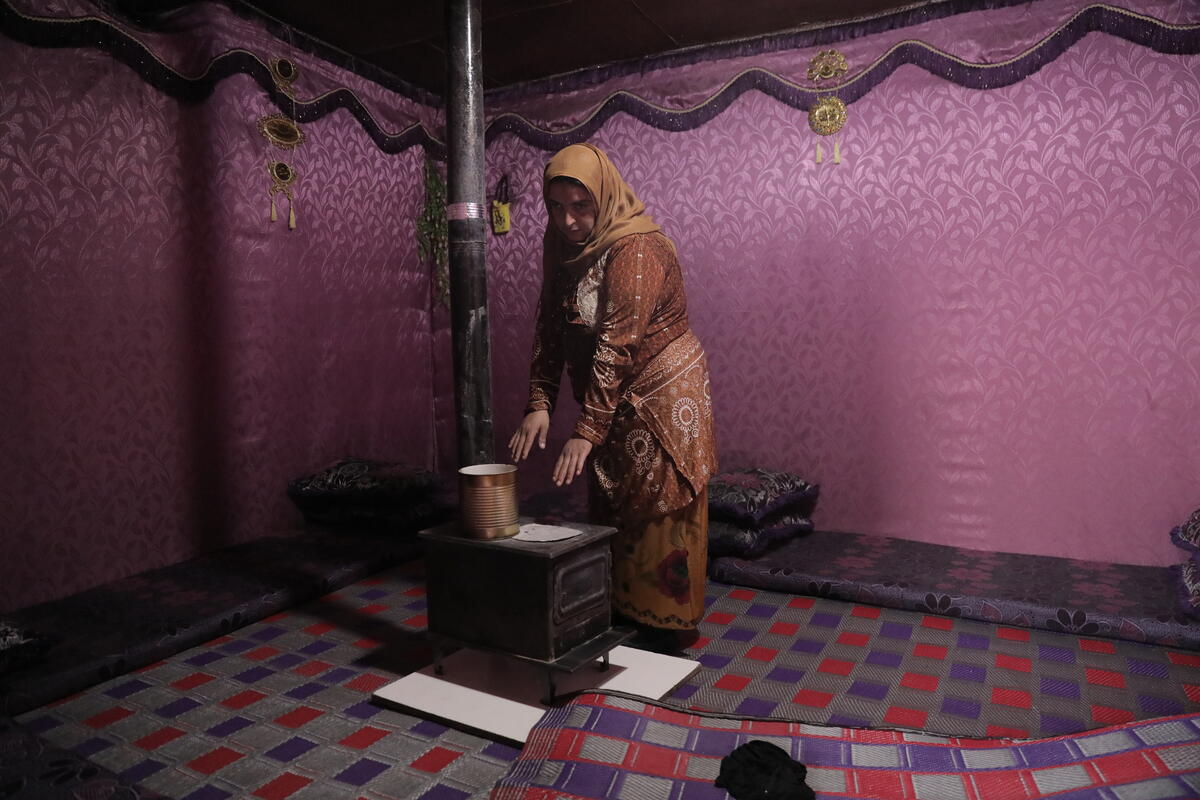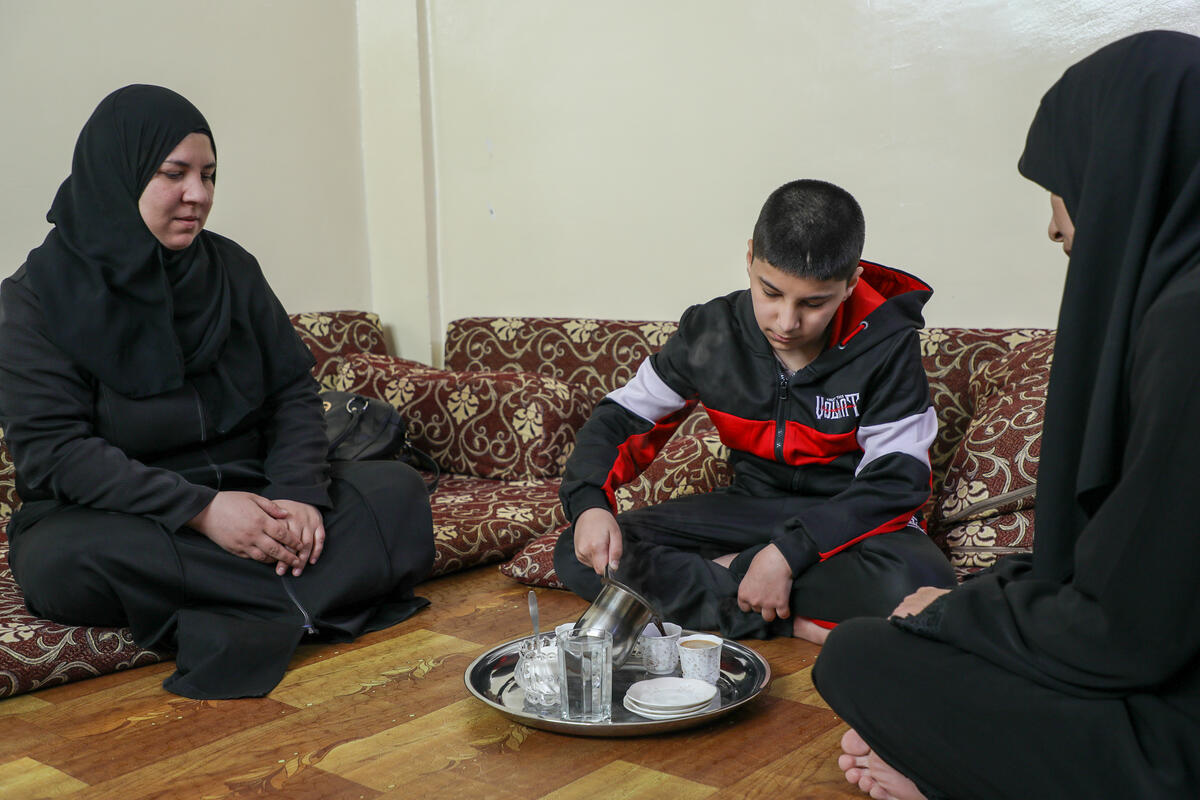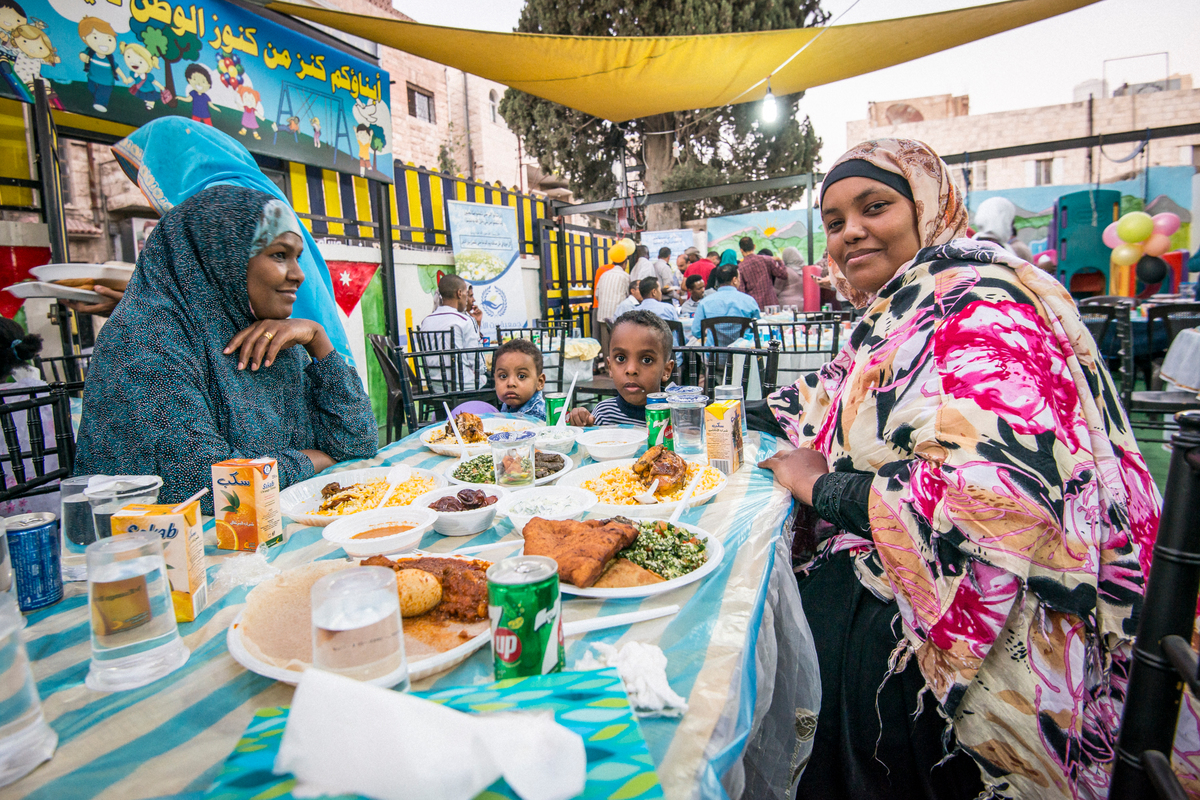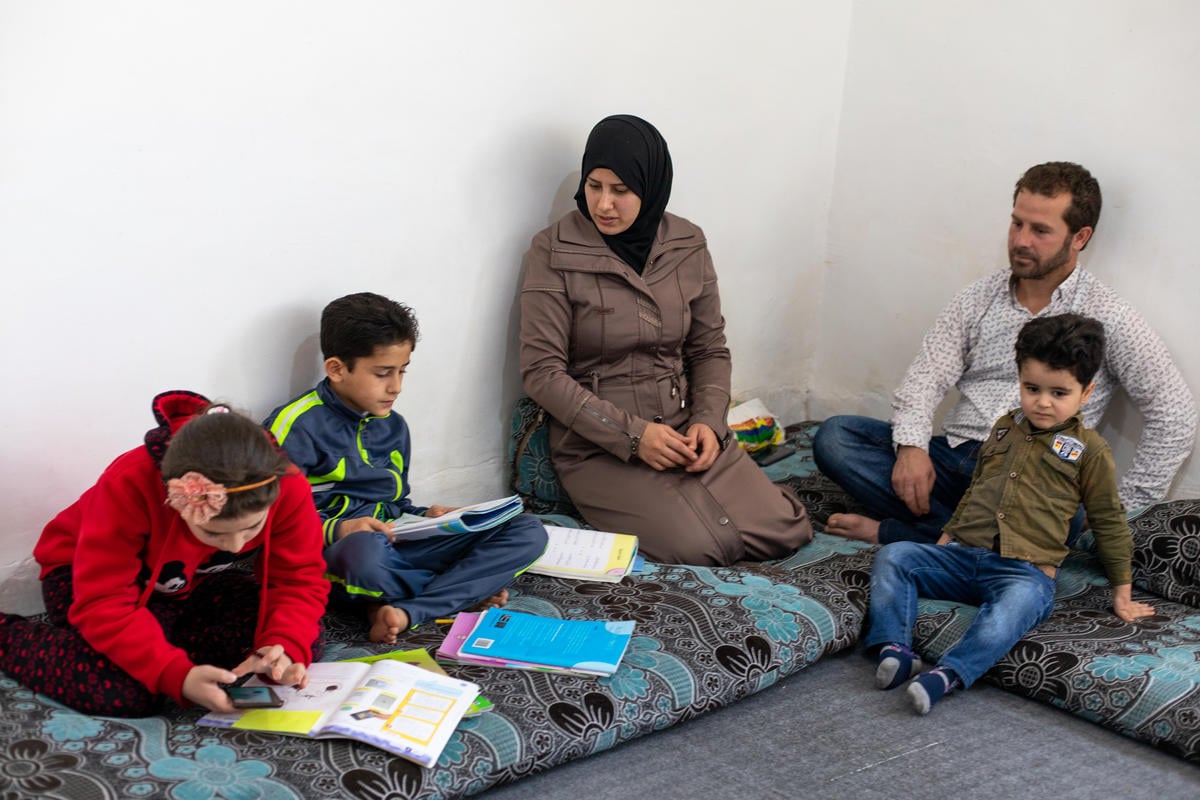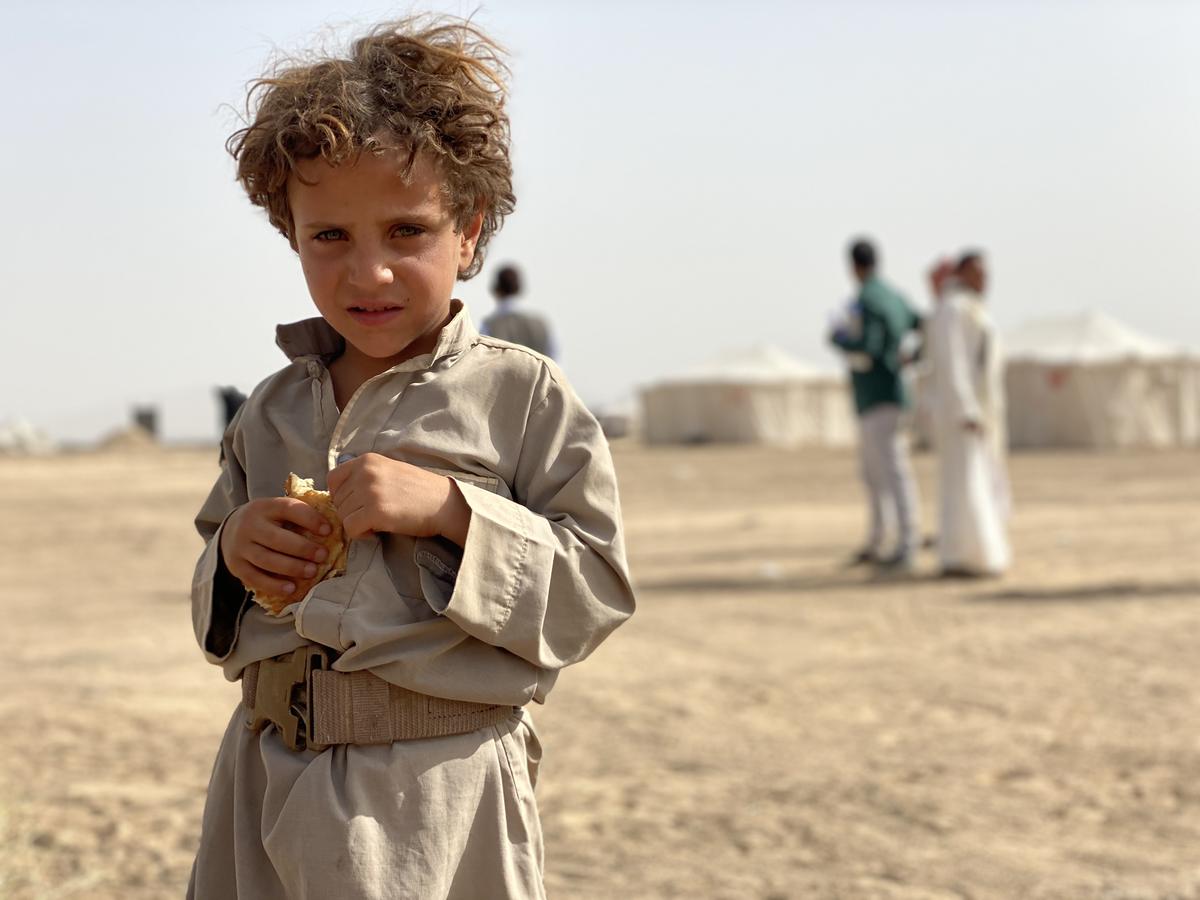Feature: Brightening the lives of Afghan refugees during Ramadan
Feature: Brightening the lives of Afghan refugees during Ramadan

ASGHARO, Pakistan, December 2 (UNHCR) - From Asgharo, the 11,000 Afghan refugees fasting for Ramadan look up at the snow-covered mountains of their homeland that loom just across the nearby border. But a year after Asgharo and other refugee camps were opened by the UN refugee agency to shelter a new influx of Afghans fleeing the United States-led war against the Taliban, few of the refugees have gone home.
While more than 1.5 million Afghan refugees have returned from Pakistan to their homeland during 2002, not many came from the new camps built near the Pakistan border for those who had arrived in late 2001.
Since the start of the UNHCR-facilitated repatriation programme in March, most of the returnees have come from Pakistan's cities - 82 percent of the total compared to 15 percent from the old camps established in the years immediately following the 1979 Soviet invasion of Afghanistan. A mere 3 percent returned from new camps like Asgharo in Pakistan's Tribal Areas.
Of the 72,626 new refugees registered when the six camps in Pakistan's border belt opened late last year, only 20,197 - less than 28 percent - have moved back to Afghanistan since March.
Although residents of new camps receive UN food rations while residents of the old camps don't, life is far from easy at Asgharo. As conditions worsen with the slide into freezing winter temperatures, the refugees depend on handouts of blankets, as well as stoves and coal supplied by UNHCR that heat the tents spread across the arid landscape.
"They are trying to survive," said Muzamill M. Mahgoub, regional director of the Kuwait-based non-governmental organisation (NGO), Lajnat al-Dawa al-Islamiah (LDI). "They need mud houses; most of them are living still in tents. And it is very difficult for them to stay here for the winter. As you can see, the snow has started over there in the mountains, so they will suffer."
Mahgoub was speaking in the courtyard of a Basic Health Unit, one of two his charity runs in Asgharo under an agreement with the UN refugee agency. LDI, one of the many NGOs implementing projects for UNHCR in the camps, also provides the wells and tankers that supply water to Asgharo's refugees, and oversees sanitation.
During the holy month of Ramadan, which ends in the Eid al Fitr feast that is among the most joyous occasions in the Islamic calendar, UNHCR and its partners in the refugee camps have tried to increase distribution to refugees. LDI spent more than $40,000 on extra food, providing each family with an additional 18 kg of staples like rice, beans, butter and sugar.
UNHCR plans a distribution of winter clothing later in December. For Eid al Fitr, the agency's staff successfully scoured warehouses to find extra clothing and blankets to hand out in time for the festival starting in the first week of December, said UNHCR field officer Bikram Chand Thakuri.
Thakuri was standing beside the camp warehouses where refugees had lined up in the morning to receive a ration of soap, and tea - an antidote to the cold. However, during Ramadan they could not drink until nightfall ended the daily fast. Smoke drifted up across the baked landscape from fires where women prepared food for the iftar, or the breaking of fast.
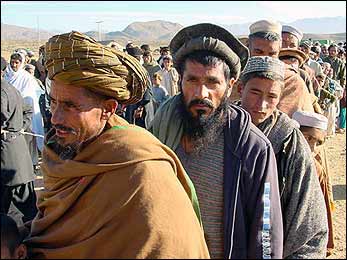
How long these refugees remain in Asgharo and the other refugee camps - both old and new - will largely be determined by what happens in their homeland. Just about every Afghan says he or she wants to go back, but then lists concerns about everything from security to the lack of jobs or infrastructure.
The refugees in Asgharo are living in a bulge of Pakistan that juts into a part of Afghanistan that has been among the most unstable since the fall of the Taliban. The nearest border is under 5 km away, less than an hour's stroll.
The Afghan city of Khost, until recently the scene of a power struggle between the central government and a warlord, lies to the south. To the north, refugees look up at the snow-covered mountains of Tora Bora, where US forces continue to fight remnants of the Taliban.
The UN refugee agency is now conducting a survey across Pakistan to determine how many Afghan refugees might be ready to repatriate in 2003. No one is predicting a repeat of 2002's massive returns, so many of the refugees in Asgharo will probably still be there when the next Ramadan begins.
Under a tripartite agreement drawn up by Afghanistan, Pakistan and UNHCR that is expected to be signed shortly, Afghan refugees wishing to go home will be assisted to repatriate over the next three years. After that, the remaining population will be screened to determine who will need continued protection as refugees.
"For as long as the refugees are here - winter or no winter - we will always be here to serve them," Mahgoub, who was born in Sudan but has headed LDI activities in the region for more than a decade, said of Asgharo. "And we will continue the work we started almost a year ago."
By Jack Redden
UNHCR Pakistan

